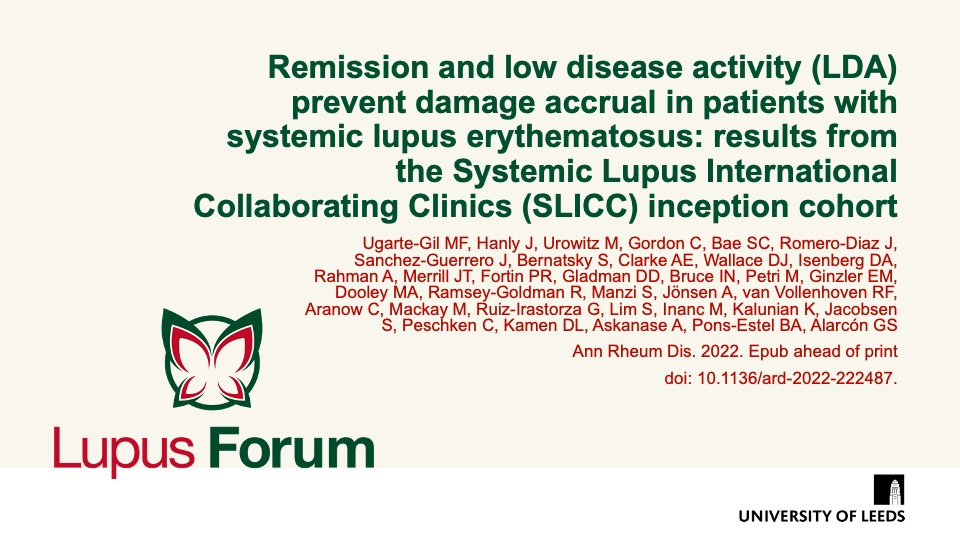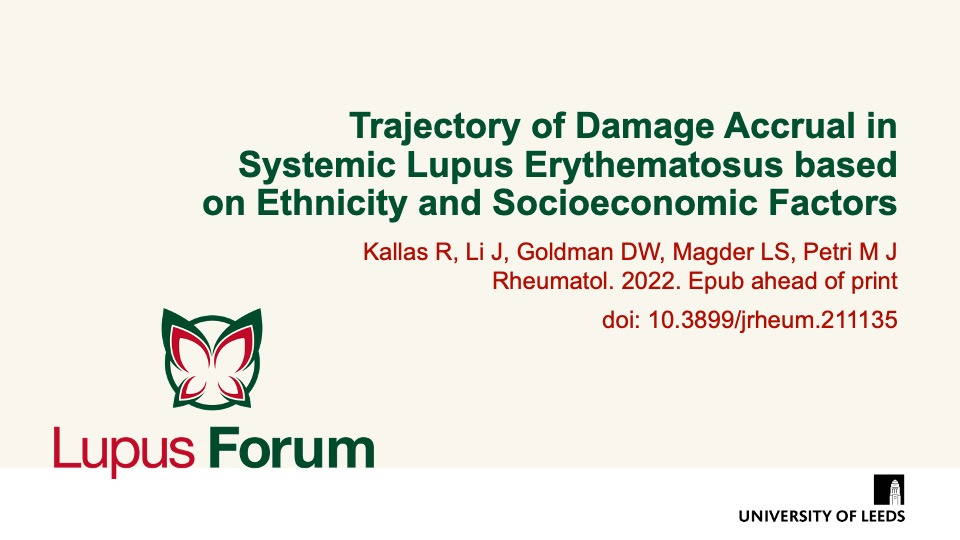Publications
Find coverage of the latest original articles on Lupus, focusing on those with data on therapeutic interventions and those that have clinical impact.
September 2022
Remission and low disease activity (LDA) prevent damage accrual in patients with systemic lupus erythematosus: results from the Systemic Lupus International Collaborating Clinics (SLICC) inception cohort
Ann Rheum Dis. 2022. Epub ahead of print doi: 10.1136/ard-2022-222487.
Large multinational, multiethnic cohort, study highlights the importance of treating-to-target in SLE.
Keywords:
Trajectory of Damage Accrual in Systemic Lupus Erythematosus based on Ethnicity and Socioeconomic Factors
J Rheumatol. 2022. Epub ahead of print doi: 10.3899/jrheum.211135
Large study confirms that cumulative damage accrual is faster in African-Americans, compared to Caucasians, highlighting that ethnicity plays the major role in damage accrual, regardless of socioeconomic status.



